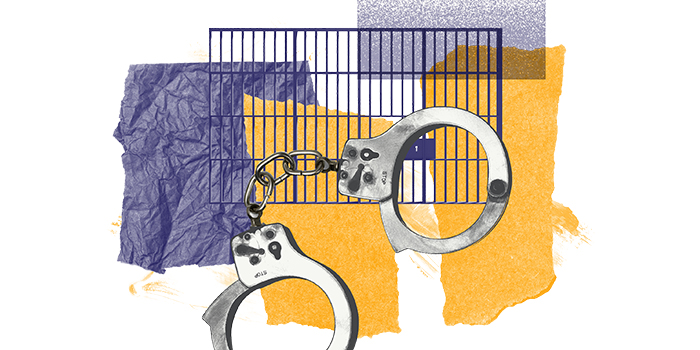
D.G. v. De Soto County School District
Summary
During an assembly on the first day of the 2009-10 school year, African-American student A.S. (the student is identified only by his initials) was sitting with his classmates in the bleachers of the Olive Branch High School gymnasium quietly singing to himself while bopping his head and bumping his fists to the beat. A.S. was immediately escorted out of the gym and accused of throwing "gang signs," in violation of an overbroad and vague school regulation that grants unfettered discretion to school officials and police to determine, after the fact, what kinds of activities are “gang-related.” Despite a lack of evidence that A.S. was involved in gang activity, A.S. was suspended from school for three days and was ultimately recommended for indefinite suspension and expulsion.
A.S. was a plaintiff in another ACLU civil rights lawsuit in De Soto County, Mississippi, which was resolved just four days before the assembly incident.
In October of 2009, the American Civil Liberties Union and the ACLU of Mississippi filed a lawsuit on A.S.’ behalf, charging school and police officials with retaliation and seeking clearer definitions of what conduct will be deemed punishable as gang-related. This lawsuit is the third federal civil rights lawsuit filed by the ACLU against school and police officials in DeSoto County, Mississippi since April 2008. Taken together, the lawsuits reveal a systemic pattern of arbitrary and unlawful conduct by school and police officials and highlight the disturbing national trend known as the school-to-prison-pipeline, wherein children are pushed out of public schools and into the juvenile and criminal justice systems. All too often, as all three ACLU lawsuits show, children of color are disproportionately targeted by such policies.
Legal Documents
-
10/19/2009
D.G. v. DeSoto County School District, et al. - Retaliatory Expulsion
Date Filed: 10/19/2009
Download DocumentPress Releases
ACLU Lawsuit Challenges Retaliatory Expulsion Of Student Under Unconstitutional Disciplinary Policy